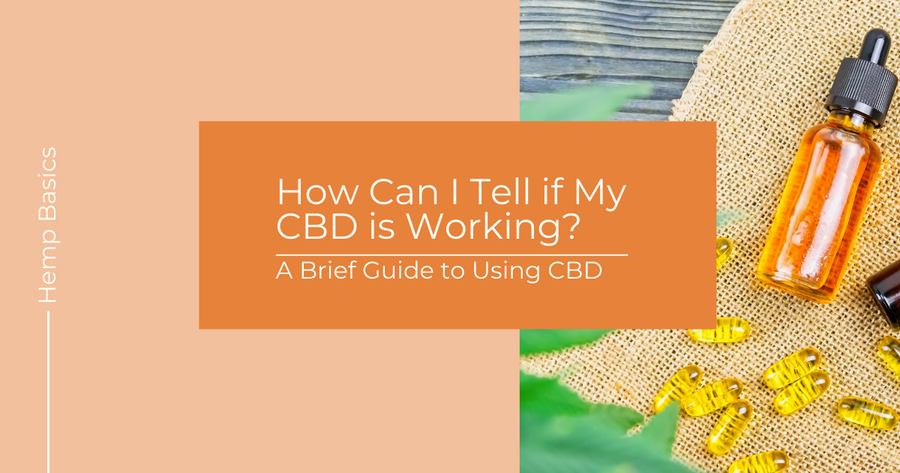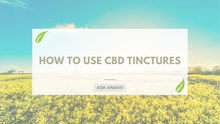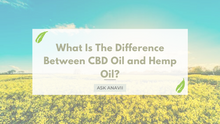We get a ton of questions about drug testing.
Specifically, how does CBD affect drug tests?
We know that finding your optimal health is the goal.
However, here at Anavii Market we want to make sure you’re aware of all the details before using CBD.
While there is much excitement in the hemp industry about CBD products and their potential moving into the future, there still is much that needs to change in order to accommodate for their use.
How Does CBD Affect Drug Tests?
Let's Dig Into The Science and Regulations
Currently, the Department of Transportation (DOT) has the most stringent thresholds, or allowable concentration levels to quality as negative. When undergoing any drug screen, the “initial test” analyzes urine concentrations at a higher level than the secondary test. The DOT’s initial test limit for cannabis metabolites is 50ng/ml. Conversely, the World Anti-Doping Agency, the agency that tests all Olympic Athletes has an initial test of 150ng/ml.
Drug testing centers specifically focus on finding cannabis metabolites called 9-carboxy-THC also known as THCCOOH, and scientifically referred to as 11-nor-9-carboxy-Δ 9 -tetrahydrocannnabinol. According to the DOT, an individual must have less than 50ng/ml of THCCOOH in his or her system to pass a drug test.
If an individual fails this drug test, there is a second option. He or she may request a “confirmatory test” (some companies will not cover this testing fee). This confirmatory test analyzes a sample at 15ng/ml. This means if the individual tests over 15ng/ml of THCCOOH in the blood or urine sample, the individual would have failed the confirmatory test. This confirmatory test “confirms” the presence of THCCOOH in the body and in the eyes of the DOT may cause reason to remove an individual from their employed position.
|
Test To Appeal |
Result: PASS |
Result: FAIL |
|
Level of THCCOOH In the bloodstream |
< 15ng/ml |
> 15ng/ml |
Individuals taking CBD oil are at an increased risk of failing a drug test than those who do not take CBD oil (assuming they do not consume other non-legal cannabis products too), and the higher the concentration or more times that an individual consumes CBD oil will create an increased risk of having a concentration of THCCOOH higher than the 50mg/ml level.
This is because there are trace quantities of THC found present in full spectrum CBD products that would be consumed over time. For instance, an individual bottle of 1000mg full spectrum CBD oil may legally contain up to 3mg of THC in the entire bottle. Those 3mg in the bottle may trigger a positive test.
Worried about failing a drug test, but still want to take CBD? Try out this Ananda Hemp THC Free CBD Oil Tincture – it contains 0.0% THC!
Disclaimer – Even when taking a zero THC CBD product, you still might fail your drug test. That's because drug tests can test for all cannabinoids – including CBD (even though hemp-derived CBD is legal!). However, if your drug test is only testing for THC, and not a spectrum of cannabinoids, you're good to go!
Unlike many drugs, THC metabolites can stay in the body for up to 30 days depending on a number of factors, including: sex, age, number of times used, metabolism, and day since last used, but most importantly the concentration of the product consumed and Body Mass Index (BMI).
BMI is essential because cannabinoids like THC and CBD are lipophilic meaning they disperse into fat tissues where the body stores them, particularly after frequent use. The greater the BMI, the longer the cannabinoids will stay in the body causing positive drug tests. If the same 1000mg (which is only 33mg CBD/serving) was entirely consumed within a one month time-frame, it is possible the 3mg of THC (while having zero intoxicating effects) ingested over a 30-day period would cause a failed drug test, depending on the person consuming it and when they had to submit the drug test.
In the past, many people have been able to appeal their job applications or current employment with explanations about CBD oil usage and the difference between hemp and marijuana. Unfortunately until legislation is introduced, or a more defined type of drug testing is instituted, we will continue to see this issue.
If you are concerned about how does CBD affect drug tests, we'd recommend speaking with your employers before consuming any hemp-derived CBD products.
How Does CBD Affect Drug Tests?
Verdict: Unfortunately, CBD does affect drug tests, and can lead to failed testing.
Will Things Change Moving Forward?
As we move into the future, you will begin to see states change their requirements for drug testing, and even specific employers begin to prioritize their staff health. We are excited about the future and believe our best days are ahead.
The #1 Rule For Taking CBD Oil
Overall, there are a lot of factors that you can consider when finding the best way to take CBD oil.
However, the number one rule is:
You never know if you don’t try.
We are here to help you accomplish your health goals, and find a solution to your pain and problems.
Trying CBD, in whichever format, is the best place to start.








